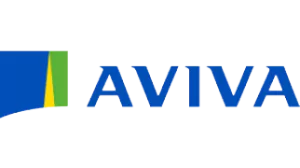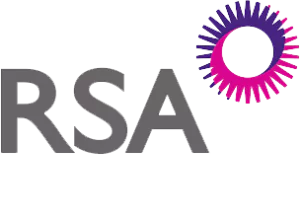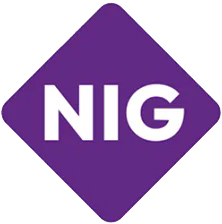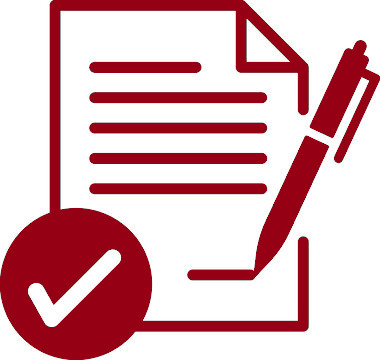We compare quotes from leading insurers
Protect Your Aquaculture Farming Business with Specialist Insurance Coverage
Specialist Aquaculture Insurance for Modern Fish Farming
Aquaculture farming presents unique risks that standard agricultural insurance simply cannot address. From fish mortality events and equipment failures to environmental liability and business interruption, your aquaculture operation needs specialized protection designed specifically for the industry.
At Insure24, we understand the complexities of aquaculture farming. Whether you operate a salmon farm in Scotland, a trout farm in Wales, or a shellfish operation along the English coast, we provide comprehensive insurance solutions tailored to protect your investment, livestock, and livelihood.
Why Choose Our Aquaculture Insurance?
- Specialist coverage for all types of aquaculture operations
- Fish mortality and stock protection
- Equipment and infrastructure coverage
- Business interruption protection
- Environmental liability coverage
- Competitive premiums from leading insurers
Comprehensive Aquaculture Insurance Coverage
- Fish Stock & Mortality Coverage - Protection against fish mortality from disease outbreaks, predation, toxic algae blooms, oxygen depletion, temperature fluctuations, and other covered perils. Includes coverage for emergency harvesting costs and disposal expenses.
- Equipment & Infrastructure - Coverage for nets, cages, pontoons, feeding systems, monitoring equipment, boats, and onshore facilities. Protection against storm damage, vandalism, theft, and accidental damage to essential aquaculture infrastructure.
- Business Interruption - Financial protection when operations are disrupted due to covered losses. Includes loss of income, continuing expenses, and additional costs incurred to minimize business interruption following an insured event.
- Public & Products Liability - Protection against third-party injury claims and property damage. Products liability covers claims arising from contaminated or defective fish products, including recall costs and legal defense expenses.
- Environmental Liability - Coverage for pollution incidents, fish escapes, and environmental damage claims. Includes cleanup costs, legal defense, and compensation for environmental restoration following covered incidents.
- Employers Liability - Mandatory coverage protecting against employee injury claims. Covers diving operations, boat work, equipment handling, and other high-risk activities common in aquaculture operations.
Key Risks in Aquaculture Farming
Understanding the unique risks facing aquaculture operations is essential for proper insurance protection:
Biological Risks
- Disease outbreaks (viral, bacterial, parasitic)
- Predation from seals, birds, and other wildlife
- Toxic algae blooms and water quality issues
- Genetic abnormalities and breeding failures
Environmental Risks
- Severe weather and storm damage
- Temperature fluctuations and thermal shock
- Oxygen depletion events
- Pollution incidents and contamination
Operational Risks
- Equipment failure and power outages
- Net damage and fish escapes
- Feed contamination and supply issues
- Theft and vandalism
Regulatory Risks
- License suspension or revocation
- Environmental compliance breaches
- Food safety violations
- Animal welfare enforcement actions
Insurance for All Aquaculture Sectors
- Salmon Farming - Comprehensive coverage for Atlantic salmon operations including sea cages, freshwater hatcheries, and processing facilities. Protection against sea lice, algae blooms, and storm damage.
- Trout Farming - Specialized insurance for rainbow trout and brown trout operations. Coverage for land-based farms, cage systems, and processing operations with protection against disease and environmental risks.
- Shellfish Farming - Protection for mussel, oyster, scallop, and other shellfish operations. Coverage includes stock mortality, equipment damage, and harvesting disruption due to pollution or biotoxin closures.
- Marine Fish Farming - Insurance for sea bass, sea bream, cod, and other marine species. Comprehensive coverage for offshore cage systems, including storm damage and equipment failure protection.
- Freshwater Aquaculture - Coverage for carp, catfish, tilapia, and other freshwater species. Protection for pond systems, recirculating aquaculture systems (RAS), and land-based farming operations.
- Ornamental Fish Farming - Specialized coverage for koi, goldfish, and tropical fish breeding operations. Protection against disease outbreaks, equipment failure, and temperature control system failures.
Benefits of Aquaculture Insurance
- Financial Protection - Safeguard your investment against catastrophic losses. Aquaculture operations require significant capital investment in stock, equipment, and infrastructure. Insurance provides the financial security to rebuild and recover from major losses.
- Business Continuity - Maintain operations during challenging times. Business interruption coverage ensures you can continue paying expenses and maintaining cash flow even when production is temporarily halted due to covered losses.
- Regulatory Compliance - Meet licensing and regulatory requirements. Many aquaculture licenses require adequate insurance coverage. Our policies ensure you maintain compliance with regulatory authorities and industry standards.
- Lender Requirements - Satisfy financing conditions. Banks and investors typically require comprehensive insurance coverage as a condition of lending. Our policies meet lender requirements and protect their investment alongside yours.
- Peace of Mind - Focus on growing your business. With comprehensive insurance protection in place, you can concentrate on optimizing production, expanding operations, and developing markets without constant worry about potential losses.
- Expert Claims Support - Professional assistance when you need it most. Our experienced claims team understands aquaculture operations and works quickly to assess losses and expedite settlements, minimizing disruption to your business.
How to Get Aquaculture Insurance
- 1. Initial Consultation - Contact our aquaculture insurance specialists to discuss your operation. We'll assess your specific risks, coverage needs, and provide initial guidance on suitable insurance options.
- 2. Risk Assessment - Complete a detailed risk assessment covering your facilities, stock, equipment, and operations. This may include site visits and technical surveys to accurately evaluate your insurance requirements.
- 3. Quote Preparation - We'll prepare comprehensive quotes from leading aquaculture insurers, comparing coverage options, terms, and premiums to find the best solution for your needs and budget.
- 4. Policy Implementation - Once you've selected your preferred option, we'll arrange the policy, handle all documentation, and ensure coverage is in place. We'll also provide ongoing support and annual reviews.
Regulatory Compliance & Standards
Aquaculture operations must comply with numerous regulatory requirements.
- Environmental Permits - Coverage supports compliance with Environment Agency permits, Scottish Environment Protection Agency (SEPA) requirements, and Natural Resources Wales regulations for discharge consents and environmental protection.
- Animal Health Regulations - Insurance aligns with Animal and Plant Health Agency (APHA) requirements, fish health management protocols, and disease notification obligations under UK aquaculture legislation.
- Food Safety Standards - Coverage supports compliance with Food Standards Agency requirements, HACCP protocols, and traceability obligations for aquaculture products entering the food chain.
- Marine Licensing - Policies meet the insurance requirements for Marine Management Organisation (MMO) licenses and Crown Estate leases for marine aquaculture operations.

Our shellfish operation faced a biotoxin closure that lasted three months. The business interruption coverage kept us afloat financially during this difficult period. Excellent service from the Insure24 team throughout."
Coastal Shellfish Company, Devon<Why Choose Insure24 for Aquaculture Farming Insurance?
- Specialist Knowledge - We understand the unique risks facing Aquaculture Farming operators
- Comprehensive Coverage - Multiple insurance products designed to work together
- Competitive Pricing - Tailored quotes based on your specific venue and operations
- Expert Support - Dedicated team available when you need us most
- Quick Claims - Fast response when incidents occur
- FCA Regulated - Authorized and regulated by the Financial Conduct Authority
Protect Your Aquaculture Farming Operator Business with Specialist Insurance Coverage
Get Your Aquaculture Farming Insurance Quote Today
Don't leave your Aquaculture Farming exposed to unnecessary risks.
Our specialist team will assess your venue's unique needs and provide a comprehensive insurance solution that protects your business, your customers, and your livelihood.
Call us now: 0330 127 2333
Or get an instant online quote at insure24.co.uk
FREQUENTLY ASKED QUESTIONS
+-
What types of aquaculture operations can be insured?
We provide insurance for all types of aquaculture operations including salmon farms, trout farms, shellfish cultivation, marine fish farming, freshwater aquaculture, ornamental fish breeding, and integrated multi-trophic aquaculture systems.
+-
Is fish mortality coverage included in standard policies?
Fish mortality coverage is typically included but varies by policy type and species. Coverage includes mortality from disease, predation, environmental factors, and other specified perils. Specific terms and exclusions apply depending on the operation type.
+-
How is the value of fish stock determined for insurance purposes?
Fish stock valuation considers factors including species, age, size, market value, feed costs invested, and production stage. Regular stock valuations may be required, and coverage can be adjusted seasonally to reflect changing stock values.
+-
What equipment is covered under aquaculture insurance?
Coverage includes nets, cages, pontoons, moorings, feeding systems, monitoring equipment, boats, vehicles, processing equipment, and onshore facilities. Both owned and leased equipment can be covered subject to policy terms.
+-
Does the policy cover fish escapes?
Yes, policies can include coverage for fish escapes including recapture costs, environmental liability, and potential claims from wild fishery interests. Coverage terms vary depending on the cause of escape and preventive measures in place.
+-
Is business interruption coverage available?
Business interruption coverage is available and highly recommended for aquaculture operations. It covers loss of income and continuing expenses when operations are disrupted due to covered losses such as equipment failure or environmental events.
+-
What environmental liabilities are covered?
Environmental liability coverage includes pollution incidents, contamination cleanup, fish escape environmental impact, and third-party environmental damage claims. Coverage extends to legal defense costs and regulatory fines where insurable.
+-
Are there exclusions for certain diseases?
Disease coverage varies by policy and may exclude certain endemic diseases or require specific health management protocols. Pre-existing conditions and notifiable diseases may have specific terms or exclusions depending on the insurer.
+-
How quickly can claims be settled?
Claims settlement timeframes depend on the complexity and type of loss. Simple equipment claims may be settled within days, while complex stock mortality or business interruption claims may take several weeks. We work to expedite all claims processing.
+-
Is coverage available for organic aquaculture operations?
Yes, we provide specialized coverage for organic aquaculture operations including protection for organic certification, premium product values, and specific risks associated with organic production methods and certification requirements.
+-
What factors affect aquaculture insurance premiums?
Premium factors include operation type, location, species farmed, production methods, risk management practices, claims history, coverage limits, and deductibles. Larger, well-managed operations with good biosecurity typically receive better rates.
+-
Can coverage be adjusted seasonally?
Yes, many policies allow seasonal adjustments to reflect changing stock values, production cycles, and risk profiles. This ensures adequate coverage during peak production periods while managing premium costs during lower-risk periods.
+-
Is coverage available for new aquaculture startups?
We provide coverage for new aquaculture operations including startups and expanding businesses. New operations may require additional risk assessment and may have specific terms during the initial operating period.
+-
What documentation is required for a quote?
Quote requirements typically include operation details, site plans, stock information, equipment schedules, financial information, licenses and permits, risk management procedures, and claims history if applicable.
+-
Are there group policies available for aquaculture associations?
Group policies may be available for aquaculture associations, cooperatives, or multiple related operations. Group arrangements can provide cost savings and simplified administration while maintaining comprehensive coverage.
+-
How does weather-related coverage work?
Weather-related coverage protects against storm damage, temperature extremes, and other meteorological events. Coverage may include named storm protection, temperature monitoring requirements, and specific terms for weather-related stock mortality.
+-
Is product recall coverage included?
Product recall coverage can be included to protect against costs associated with recalling aquaculture products due to contamination, disease, or other food safety issues. Coverage includes recall expenses and lost product values.
+-
What cyber security coverage is available?
Cyber coverage protects against data breaches, system failures, and cyber attacks affecting monitoring systems, customer data, and business operations. This is increasingly important as aquaculture operations become more digitized.
+-
Can international operations be covered?
Coverage may be available for UK-based companies with international aquaculture operations, subject to specific terms and conditions. International coverage requires detailed risk assessment and may involve specialized international insurers.
+-
How often should policies be reviewed?
Policies should be reviewed annually at renewal and whenever significant changes occur in operations, stock levels, equipment, or risk profile. Regular reviews ensure adequate coverage and may identify opportunities for premium savings.
+-
What is the average cost of aquaculture insurance in the UK?
Aquaculture insurance costs vary significantly based on operation size, species, location, and coverage requirements. Small freshwater operations may pay £2,000-£5,000 annually, while large marine salmon farms can pay £50,000+ per year. Factors affecting cost include stock values, equipment worth, location risk, and claims history.
+-
Do I need separate insurance for fish hatcheries and grow-out operations?
Hatcheries and grow-out operations can often be covered under a single comprehensive policy, but may require different coverage levels and terms. Hatcheries face higher disease risks and require specialized biosecurity coverage, while grow-out operations need more environmental and equipment protection.
+-
Is aquaculture insurance mandatory in the UK?
While not legally mandatory, aquaculture insurance is typically required by licensing authorities, lenders, and landlords. Most marine licenses and Crown Estate leases require adequate insurance coverage. Employers liability insurance is legally required if you employ staff.
+-
What happens if my fish farm insurance claim is denied?
If a claim is denied, you can request a detailed explanation, provide additional evidence, or appeal the decision. We assist clients through the appeals process and can involve independent loss adjusters or legal support if necessary. Most disputes are resolved through negotiation.
+-
Can I get insurance for experimental or research aquaculture projects?
Yes, insurance is available for research and experimental aquaculture projects including university research, new species trials, and innovative farming methods. Coverage may require additional risk assessment and specialized terms due to the experimental nature.
+-
Does aquaculture insurance cover losses from algal blooms?
Algal bloom coverage depends on the policy terms and bloom type. Toxic algal blooms causing fish mortality are typically covered, while routine seasonal blooms may be excluded. Coverage includes emergency harvesting costs and disposal expenses for affected stock.
+-
What insurance do I need for recirculating aquaculture systems (RAS)?
RAS operations need specialized coverage for complex filtration and life support systems, backup power supplies, and water quality monitoring equipment. Coverage includes system failure, power outages, and the resulting fish mortality from environmental control failures.
+-
Is insurance available for land-based salmon farming?
Yes, land-based salmon farming insurance covers the unique risks of onshore production including system failures, water supply issues, and facility-specific risks. Coverage differs from traditional sea cage operations and requires specialized risk assessment.
+-
How does insurance work for multi-site aquaculture operations?
Multi-site operations can be covered under a single master policy or separate site-specific policies. Master policies offer cost savings and simplified administration, while site-specific coverage allows tailored protection for different locations and risk profiles.
+-
What documentation do I need for an aquaculture insurance claim?
Claims require mortality records, veterinary reports, environmental data, photographs, financial records, and incident reports. For equipment claims, provide purchase receipts, repair estimates, and damage photos. Prompt notification and detailed documentation expedite claim processing.
+-
Can I get insurance for aquaponics operations?
Aquaponics insurance covers both fish and plant production components including fish mortality, crop losses, system failures, and equipment damage. Coverage addresses the integrated nature of aquaponics with specialized terms for dual production systems.
+-
Does insurance cover losses from seal predation?
Seal predation coverage is typically included in fish mortality protection, subject to policy terms and preventive measures. Coverage may require anti-predator nets, acoustic deterrents, or other protective measures to be in place.
+-
What is the difference between named perils and all risks aquaculture insurance?
Named perils policies cover only specifically listed risks like storm damage or disease outbreaks. All risks policies cover any loss except specifically excluded perils, providing broader protection but at higher cost. Most aquaculture operations benefit from all risks coverage.
+-
Is insurance available for mobile fish processing units?
Mobile processing units can be insured for equipment, stock, and liability risks. Coverage includes transit protection, on-site processing risks, and food safety liability. Specialized terms apply for mobile operations visiting multiple sites.
+-
How do I insure fish during transportation?
Fish transit insurance covers mortality and losses during transportation between sites, to markets, or to processing facilities. Coverage includes vehicle breakdown, accidents, temperature control failures, and handling risks during loading and unloading.
+-
What cyber risks do aquaculture operations face?
Aquaculture cyber risks include monitoring system hacks, data breaches affecting customer information, ransomware attacks on control systems, and IoT device vulnerabilities. Cyber insurance covers system restoration, data recovery, and business interruption from cyber incidents.
+-
Can I get insurance for seaweed farming operations?
Seaweed farming insurance covers crop losses from storms, disease, pollution, and harvesting equipment. Coverage includes longlines, buoys, processing equipment, and business interruption. The growing seaweed industry has specialized insurance products available.
+-
Does aquaculture insurance cover climate change related losses?
Climate change impacts like rising sea temperatures, ocean acidification, and extreme weather are increasingly covered under modern aquaculture policies. Coverage depends on specific perils and may require climate adaptation measures to be in place.
+-
What insurance do I need for fish feed manufacturing?
Fish feed manufacturing requires product liability coverage for contaminated feed, recall insurance, and professional indemnity for nutritional advice. Coverage includes manufacturing equipment, stock contamination, and claims from feed-related fish losses.
+-
Is insurance available for offshore aquaculture operations?
Offshore aquaculture insurance covers the unique risks of exposed ocean locations including severe weather, equipment loss, and challenging access for maintenance. Specialized marine insurance expertise is required for offshore cage systems and support vessels.
+-
How does insurance work for integrated multi-trophic aquaculture (IMTA)?
IMTA insurance covers multiple species and production levels including finfish, shellfish, and seaweed components. Coverage addresses the interconnected nature of IMTA systems where losses in one component can affect the entire integrated operation.
+-
What are the insurance requirements for aquaculture exports?
Export operations need additional coverage for international transport, foreign regulatory compliance, and extended supply chains. Marine cargo insurance, export credit insurance, and international liability coverage may be required for overseas markets.
+-
Can I get insurance for community-supported aquaculture operations?
Community-supported aquaculture (CSA) operations can be insured with specialized terms for member-owned or cooperative structures. Coverage addresses unique liability exposures from member involvement and direct-to-consumer sales models.
+-
Does insurance cover losses from water quality testing errors?
Professional indemnity coverage can protect against losses from incorrect water quality advice or testing errors. This is particularly important for consultants and service providers offering water quality management services to aquaculture operations.
+-
What insurance do I need for aquaculture equipment leasing?
Leased equipment requires specialized coverage addressing lessor interests, maintenance responsibilities, and return conditions. Coverage includes damage to leased cages, nets, boats, and monitoring equipment with terms protecting both lessee and lessor interests.


 0330 127 2333
0330 127 2333






